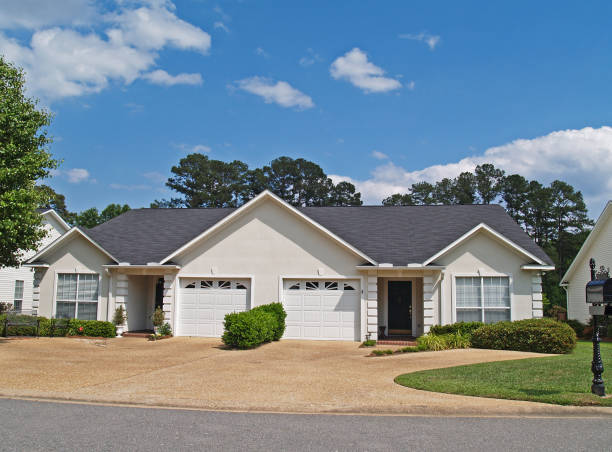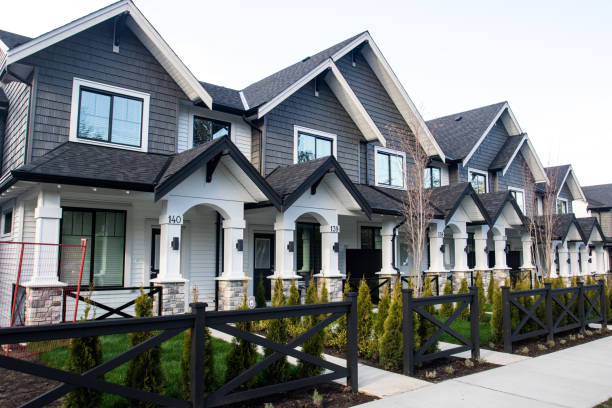Townhouse vs Duplex: Key Differences Every Buyer Should Know

When searching for a home or investment property, buyers often compare a townhouse vs duplex to determine which suits their needs best. Both property types offer unique advantages and considerations, depending on whether you’re looking for affordability, privacy, or rental income potential. Understanding the key differences between these two housing options is crucial for making an informed decision.
Homebuyers and real estate investors alike frequently weigh the pros and cons of a duplex vs townhouse to decide which is the better fit for their lifestyle or financial goals. A townhouse offers a more community-oriented living experience, often with shared amenities and lower maintenance responsibilities. Meanwhile, a duplex presents the opportunity for rental income and greater independence. But which one is right for you? Let’s explore both in detail.
What Is a Townhouse?
A townhouse is a multi-level, single-family home that shares one or more walls with adjacent units. Unlike apartments or condominiums, townhouses typically have their own private entrances and outdoor spaces, making them an appealing option for those who want a balance between communal and independent living. Townhouses are commonly found in suburban developments and urban settings, offering a convenient and affordable alternative to standalone homes.
Characteristics of a Townhouse:
-
Multi-story design, often two or three floors
-
Private entrance and sometimes a small backyard or patio
-
Shares walls with neighboring homes on one or both sides
-
Typically part of a community with a homeowners’ association (HOA)
-
May include shared amenities like pools, gyms, and clubhouses
-
Located in urban or suburban developments
Most townhouses are part of a planned community, where homeowners are responsible for maintaining their interiors while exterior upkeep and landscaping are often covered by HOA fees. This setup makes townhomes an attractive option for those who want homeownership with fewer maintenance concerns.

What Is a Duplex?
A duplex is a residential building divided into two separate units, each with its own entrance, kitchen, and living spaces. These units may be side by side, sharing a common wall, or stacked on top of each other. Duplexes can be owned entirely by one person or have different owners for each unit, depending on how the property is structured.
Characteristics of a Duplex:
-
Two independent units within one building
-
Each unit has its own entrance, kitchen, and living space
-
May have a shared wall or be on separate floors
-
Can be owner-occupied with rental income potential
-
Typically not part of an HOA, meaning no additional fees
-
Found in residential neighborhoods, often near single-family homes
Many people invest in duplexes as a way to generate passive income by living in one unit while renting out the other. This strategy helps offset mortgage costs and can lead to long-term financial gains. Others purchase duplexes as full rental properties, using both units for income generation.

Key Differences Between Townhouses and Duplexes
Understanding what is a duplex vs townhouse can help clarify which type of property aligns best with your homeownership or investment goals.
Ownership Structure
In a townhouse, each unit is individually owned, similar to a single-family home. Owners are responsible for their property but must adhere to HOA rules if applicable. In contrast, a duplex may have a single owner or two separate owners, depending on whether the property is sold as one or split into separate units.
Privacy and Space
Townhouses typically have shared walls on both sides (except for end units), making privacy more limited. Duplexes, on the other hand, usually share just one wall or are completely separate when designed as stacked units, offering more privacy to each occupant.
Rental Income Potential
A townhouse is primarily an owner-occupied residence with little room for rental income, aside from renting out an extra bedroom. A duplex, however, is an excellent investment option, as one unit can be rented out while the owner lives in the other, or both units can be used as rental properties.
Maintenance and Fees
Townhouses often come with HOA fees, which cover external maintenance, landscaping, and community amenities. A duplex has no HOA fees, but the owner is responsible for all maintenance and repairs, which can be a significant financial consideration.
Community Living
Townhouses are typically part of larger developments with shared amenities, fostering a strong sense of community. Duplexes, while often located in residential neighborhoods, offer a more independent living experience, making them better suited for those who prefer more privacy.

Pros and Cons of Townhouses and Duplexes
Pros of Townhouses:
-
More affordable than single-family homes
-
Lower maintenance responsibilities due to HOA services
-
Access to shared community amenities
-
Convenient locations in suburban and urban areas
Cons of Townhouses:
-
HOA fees and restrictions
-
Less privacy due to shared walls
-
Limited ability to rent out the property
Pros of Duplexes:
-
Potential for rental income
-
Greater privacy compared to townhouses
-
No HOA fees or community restrictions
Cons of Duplexes:
-
Higher maintenance responsibilities
-
Potential landlord obligations
-
May require a higher upfront investment
Townhouse vs Duplex: Which Option Is Right for You?
Choosing between a duplex vs townhouse depends on your personal priorities and financial goals.
-
If you prefer a low-maintenance lifestyle with access to community amenities, a townhouse might be the right choice.
-
If you’re looking for an income-generating property, a duplex is a strong investment opportunity.
-
If privacy is a key factor, a duplex generally provides more separation than a townhouse.
-
If you want fewer restrictions, a duplex allows for more flexibility without HOA rules.
Ultimately, both options have their own set of benefits, so consider your long-term goals when deciding which is best for you.

Conclusion
Whether you’re a homebuyer or an investor, understanding the differences between a townhouse vs duplex is essential for making the right choice. Both offer distinct advantages, depending on whether you prioritize affordability, investment potential, or community living.
If you’re looking to learn more about real estate investing, Dwanderful, founded by real estate investor and podcast host Dwan, is a valuable resource. Dwan offers a free book, “Real Estate Lingo“, which provides essential real estate terms to help you navigate the industry. For those wanting a deeper dive into investment strategies, her book “Five Pillars of Real Estate Investing” is a must-read.
Additionally, take Dwanderful’s quiz to discover how you could generate six figures in the next six months—whether you’re buying your first property or expanding your portfolio. It takes less than a minute and could give you key insights into your real estate potential! Contact us now!
Frequently Asked Questions:
Is a duplex or a townhome a better investment?
A duplex typically offers better investment potential since you can rent out one or both units, generating income. A townhouse is more suited for owner-occupants who want a low-maintenance living option.
Are duplexes and condos the same type of property?
No, a duplex consists of two separate units within a single building, whereas a condo is an individually owned unit within a larger complex. Condo owners typically pay HOA fees, while duplexes may not have such fees.
Are townhomes becoming more popular?
Yes, townhomes are becoming more popular, especially in urban areas where space is limited. They provide a balance between affordability, convenience, and homeownership without the high maintenance of a single-family home.


